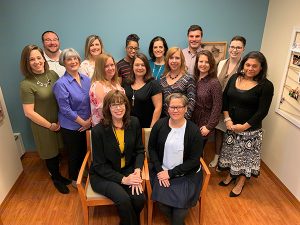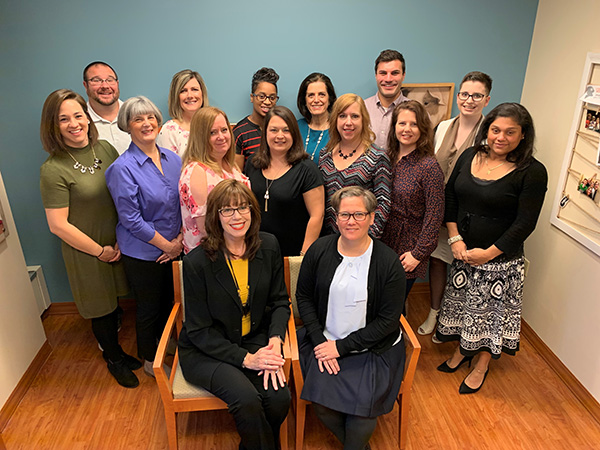
Whether you are saying hello to a friend, answering a question at school or work, or simply talking to your neighbor, your voice is what often connects you to the people and world around you. Clinicians and scientists in the Department of Otolaryngology at the University of Pittsburgh School of Medicine continue to study voice disorders and develop innovative treatment strategies that ensure everybody can use their voice.
Led by Jackie Gartner-Schmidt, PhD, and Libby Smith, DO, the UPMC Voice Center continues to provide world-class clinical care for voice patients, while also performing research projects that enable clinicians to improve current treatment strategies. Researchers are currently working on a comprehensive patient questionnaire, inquiring about factors such as voice and personality, identity, anxiety and depression, perceived stress, and more. This data set will allow scientists to understand better which etiologic factors may contribute to the development of voice disorders.
Researchers continue working to improve voice therapy techniques, and are currently looking at therapy timelines to determine when it is best to focus on conversational speech exercises. Transitioning from voice therapy techniques to conversational speech is the most difficult aspect of voice therapy for patients, and recent voice therapy programs using conversational speech as the sole therapeutic method have been highly favorable.
An additional study taking place is looking at potential replacements to semi-occluded vocal tract (SOVT) exercises. While SOVT exercises are a traditional component of many current voice therapy programs, they are not without their limitations. Initial studies are showing that performing speaking and singing exercises while using a ventilation mask will potentially result in the same benefits of SOVT, but allow for connected speech.
With ongoing support from Eye & Ear Foundation donors, scientists and clinicians in the Department of Otolaryngology and UPMC Voice Center will be able to continue their collaborative efforts to study and develop patient care practices that ultimately improve patient lives.
For the latest news on Voice Center research, subscribe to EEF’s Monthly Newsletter.
